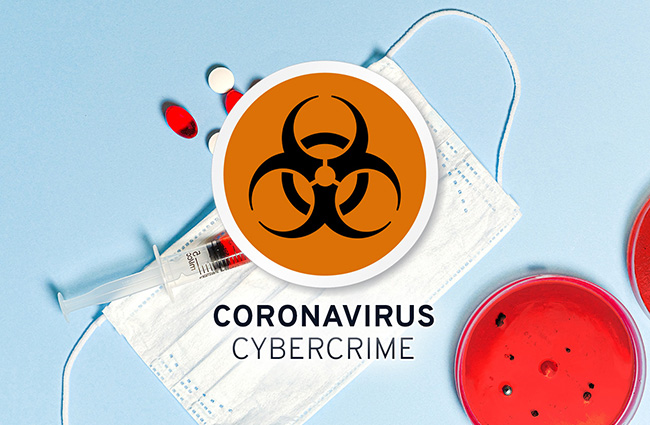
The COVID crisis has wreaked havoc in the world, especially on the economy. Businesses have either struggled or collapsed entirely following the financial pressures of the pandemic. A lot of that may have to do with cybersecurity since the rise of data breaches and ransomware attacks quickly followed the global spread of the deadly airborne virus.
The pandemic forced companies to move the majority of their operations to home-based workspaces. The stay-at-home culture is likely to stay until the situation improves and stabilizes. Although employees work from home to protect themselves from the coronavirus, they’ve become increasingly susceptible to another kind of threat: cyberattacks!
It appears that the offline pandemic has given birth to an ‘online pandemic’ as the rapid surge in internet users has paved the way for cybercriminals to exploit the plethora of newfound vulnerabilities. Black hat hackers now have access to a greater attacking surface and more comprehensive sources of sensitive data to breach and monetize.
What is COVID-19 Pandemic’s Effect on Small Businesses?
Corporations go to all lengths to preserve their data and their systems. They heavily invest in security infrastructure, often employing white hat hackers, firewalls, encrypted networks, antivirus software, and even premium threat detection services. Their systems are continually being updated and reconfigured to combat the ever-so-versatile threats imposed by malicious hackers.
Denial of service attacks, ransomware sieges, and data breaches can disrupt their operations, causing millions of dollars in losses and resulting in irreparable damages to brand reputation. These are valid reasons why the cybersecurity has to be made a part of the daily agenda in boardroom meetings.
Small businesses, however, usually lack the financial reserves and the resources to invest in cybersecurity. Funds seem to be better off being injected into areas that generate more profitable results. They may not even prioritize online-security since the clientele-base may even not be large enough to incur potential revenue losses, and the brand itself may not be reputable enough to gain enough traction from cybercriminals.
Cyber-safety Tips for Small Businesses
Unfortunately, cybercriminals do not discriminate and will prey on the weak and vulnerable. However, there are a few ways to curtail online threats, regardless of company size.
1. Employee Education
The safest and cheapest way to bolster a company’s cybersecurity situation is to enforce best practices. Phishing attacks are one of the most common yet destructive sources of data breaches in the industry. Regular training sessions can help mitigate these dangers since the employees are generally more aware of their actions’ consequences.
2. Go Cloud
Running your services and hosting your data on the cloud not only saves costs on local warehouses and machinery, but it even improves the safety and durability of your system. Backup data stores can even speed up the recovery process in case of data breaches.
3. Extra Authentication
Remote networks can be liabilities since they aren’t secured and can provide multiple channels for malicious actions. By increasing authentication layers and following the policy of ‘Zero Trust,’ many of these threats can be evaded.
